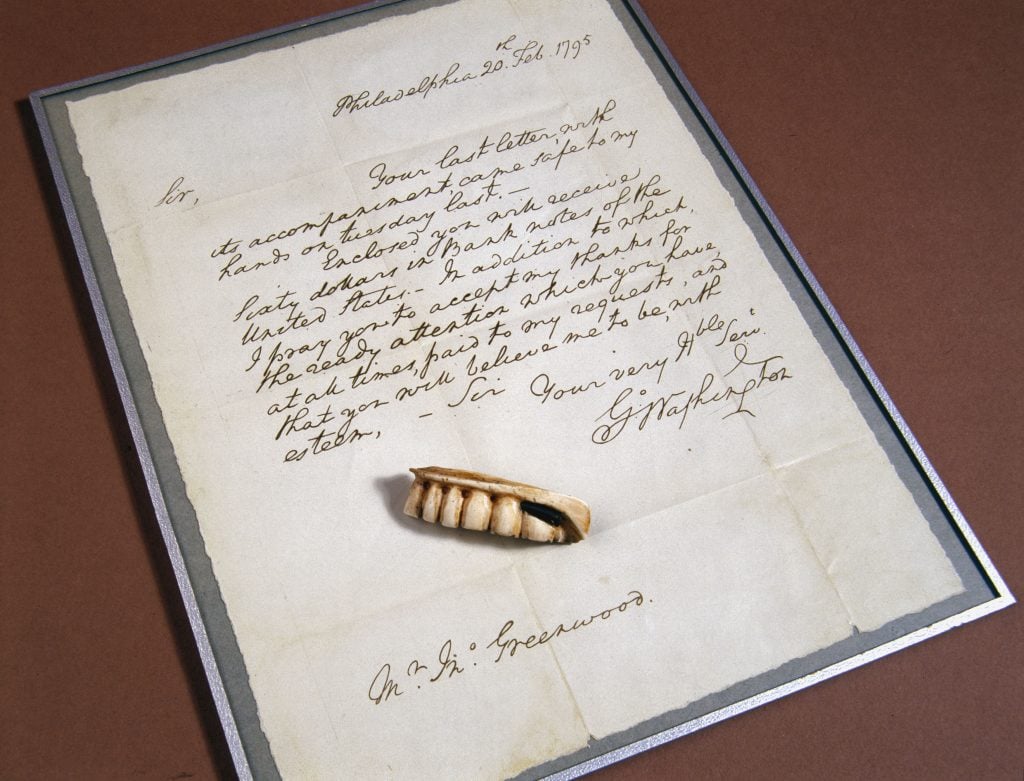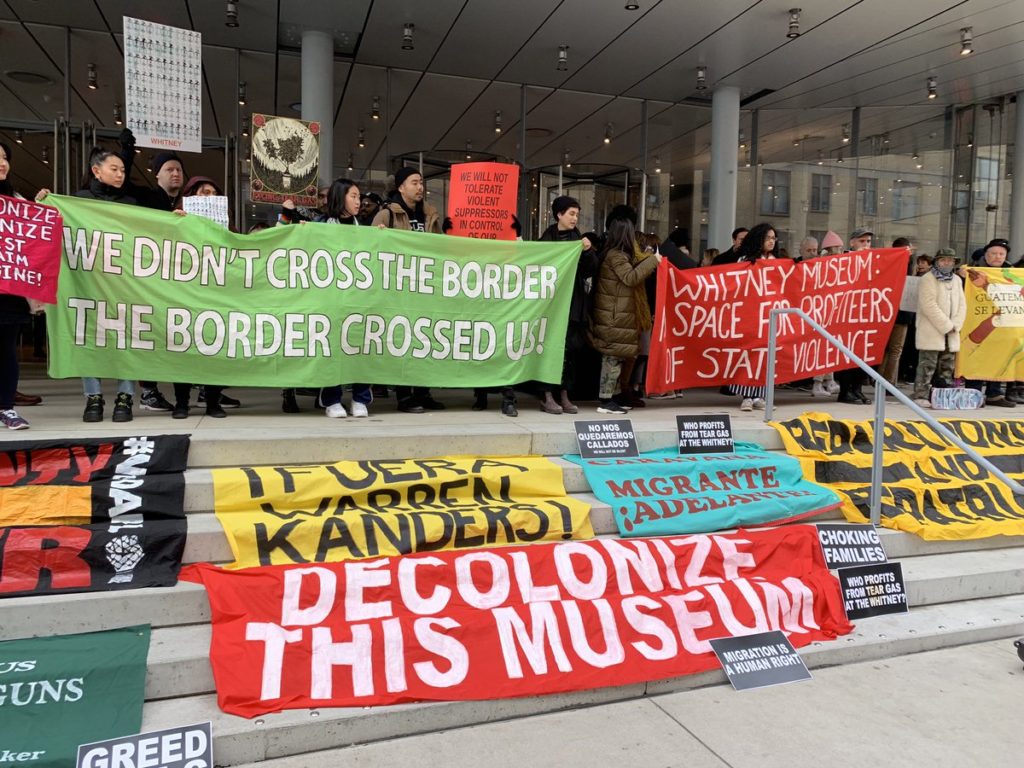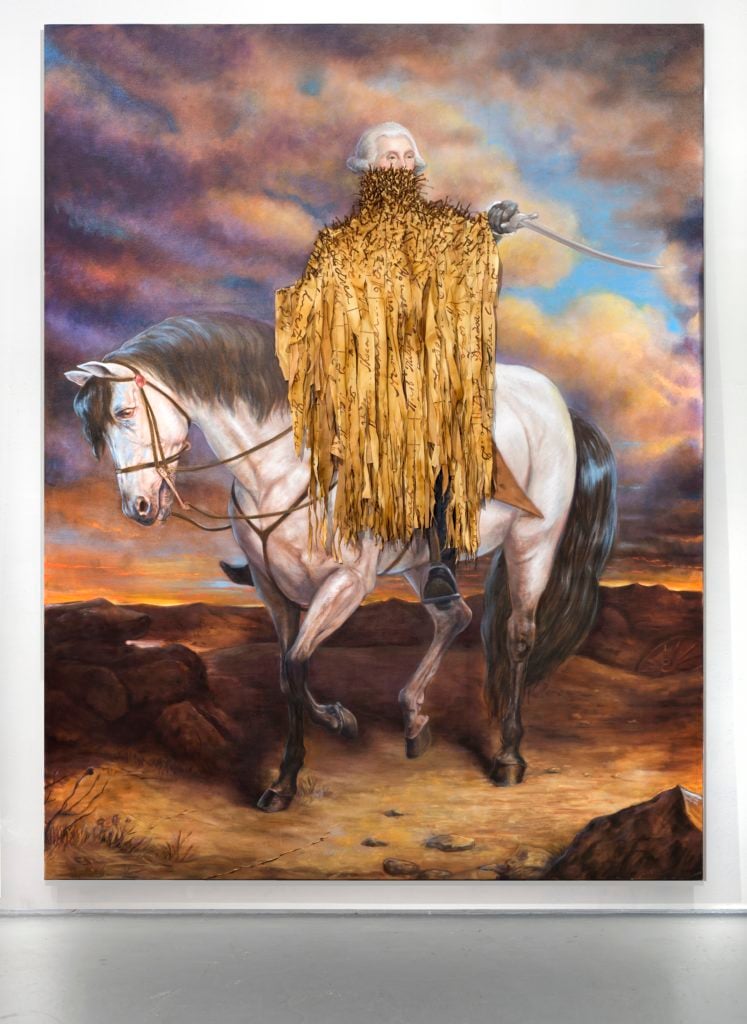Each and every Wednesday early morning, Artnet Information provides you The Grey Market. The column decodes significant stories from the former week—and delivers unparalleled perception into the interior workings of the artwork field in the system.
This week, crossing the border amongst idea and practice…
JOURNEY VS. Desired destination
On Sunday, New York Instances media columnist Ben Smith explored the progressive journey internet site Atlas Obscura’s self-explained “decolonization job.” Its goals and limits sketch out a handy framework for artwork-industry contributors—and artwork-industry critics—as our area of interest marketplace struggles to handle related inequities.
Atlas Obscura’s mission has often been to illuminate what standard travel guides would possibly disregard or elide about a slew of spots worldwide. Just after commencing its daily life as a website centered primarily on desired destination-distinct lists and itineraries, the publication has expanded to provide up characteristic-duration journalism, podcasts, online classes, and (prior to previous year’s shutdown) even absent-from-the-keyboard experiences.
On the other hand, 11 years following its founding, Atlas Obscura is also in the midst of a reckoning. Beneath editorial director Samir Patel, the web page is now examining, modifying, and supplementing (in Smith’s terms) “some of the 20,000 entries from a database, compiled by its community and staff, of curious places all around the entire world in gentle of the final year’s change in how Americans see their background.” Consider of it as a return trip to scores of websites from a recently woke point of view.
The bookends of Smith’s one particular-working day ridealong with Patel crystallize the flavor of the reassessment: a fact-bomb viewing of George Washington’s dentures that discovered 6 of the tooth had been probable extracted from the very poor for a cost, or from enslaved men and women by power and a visit to a commemorative landmark in Inwood Hill Park bearing a plaque that distorts the character of the offer the Dutch made use of to seize Manhattan from its indigenous inhabitants.
(Modern-day curricula have usually taught that the Native Us residents outright marketed the land for a grip of glass beads, but proof suggests they thought they were being only licensing the land for cooperative use.)

A reproduction set of George Washington’s dentures with a duplicate of a letter of thanks the initial President wrote to his dentist. The genuine dentures have a vastly a lot more unsettling history than you have been led to consider in elementary college. Photograph by SSPL/Getty Photographs.
Nonetheless Atlas Obscura’s historical revisionism also raises a brambly problem for progressive globetrotters. Smith rates Rafat Ali, founder of the vacation business web page Skift, indicating that journey composing is “always likely to be outsiders wanting in.” What I believe he indicates is that there is a quasi-colonialist ethic constructed into the creation and use of the type at a foundation level: Foreigners with income to spare fall into a far-flung place, encounter the community tradition as recreation, then return to their creature comforts when the prices of staying outweigh the advantages.
Is it feasible, then, that the only way to entirely decolonize journey writing would be to shut it down?
It turns out that Patel, one of the major forces guiding Atlas Obscura’s decolonization undertaking, truly thinks the response could possibly be of course. Smith relays Patel stating to him that “he’s not certain ‘decolonizing’ was the right phrase for the task,” with Patel including that “decolonization implies removal, and which is not what we’re carrying out.”
Sure, the publication is channeling its coverage by way of a fuller, much more worldly, more equitable filter. A main component of this effort and hard work will involve commissioning composing from non-white citizens of locations abroad, as effectively as from a a lot more inclusive array of U.S.-based talent. Patel acknowledges this solution “makes travel crafting less uninteresting,” but it doesn’t decolonize the medium.
All of which qualified prospects us to the artwork market.

Decolonize This Spot protests at the Whitney Museum of American Art. Photograph courtesy of @nycDSAantiwar.
EVOLUTION VS. REVOLUTION
“Decolonization” has been a news-building rallying cry in the art earth considering the fact that at the very least the slide of 2016. That was when Artists House hosted an exhibition by the MTL+ collective whose title, “Decolonize This Spot,” now doubles as the title of the multi-firm motion at the forefront of direct actions towards the Whitney, the Brooklyn Museum, the American Museum of Purely natural Record, and other significant institutions in the many years due to the fact.
Whilst the phrase “decolonization” has seldom been invoked on the for-gain side of the business, its vitality has increasingly radiated into the artwork current market. The past a few decades (and counting) of revenue, exhibitions, and illustration promotions have been affected by a mounting urgency to rebalance the scales of fairness. Just after generations in which well-off white Western adult males have been handled as the supreme arbiters of flavor on equally the generation and use facet of the trade, artwork has at final sprouted, if not a conscience, then at least a consciousness of its biases.
But the final results have been blended regardless of whether seen as a result of the prism of race, gender, or any other identification-dependent trait. As of September 2018, performs by Black artists comprised only about 1.2 percent of all worldwide auction product sales through the preceding 10 years. (The determine plummeted to just over a person-quarter of a single p.c if you removed Jean-Michel Basquiat). Functions by gals fared improved, but only a bit, making up roughly two percent of all over the world sales less than the hammer amongst 2008 and mid-2019.
The proportions have certainly enhanced in the time due to the fact, and a DEI generate (range, fairness, and inclusion) has been obvious in the gallery sector, way too. Nonetheless, I’d wager the improvements have remained a lot more evolutionary than groundbreaking. Practically 60 p.c of artists signed by 70 galleries between March and November 2020 were white, according to an examination by my colleague Kate Brown.
Second-buy concerns gnaw at the edges of progress, as well. To cite 1 case in point, Black figurative painters have unquestionably produced additional cash in sales because 2018 than for the duration of any other period in sector historical past. But Black collectors nevertheless come to feel they are typically being boxed out of prospects to receive in-desire functions, reinforcing the exact same structural biases that have defined the Western artwork trade almost considering the fact that its inception.
I don’t consider this is an accident or a momentary quirk of record. Just as the only legitimate way to decolonize journey creating would be to demolish it, it looks to me that the only legitimate way to decolonize the artwork current market would be to blow it up from the foundation.

Titus Kaphar, Shadows of Liberty (2016). Courtesy of the artist and Jack Shainman Gallery.
Capital VS. Fairness
By definition, marketplaces are techniques that privilege wealth. Individuals with funds get what they want mainly because they can either meet up with a price that other folks can’t or because their reputations make them much more fascinating consumers than significantly less-regarded men and women with the similar budgets.
Now, it is real that course is certain up with race, gender, and other human attributes in a intellect-mincing wire mesh of complications. Just search at the information displaying that, to quotation the New York Situations, “Black boys lifted at the top… are more likely to grow to be poor than to remain wealthy in their individual households,” when their white counterparts who “grow up abundant are probable to continue being that way.” Just as damning are the studies confirming that the Terrific Shutdown has performed disproportionate and egregious hurt to women in the U.S. labor force. Myriad other research of inequity are about as simple to discover as just one of your individual eyebrows.
Nevertheless a market is only intended to care about the thickness of a customer’s bankroll, not why that bankroll is as thick or slim as it is. The system is logical, but not equitable. At least, not in the much larger social sense that we signify when we discuss about fairness, participation, and especially decolonization.
So just as Atlas Obscura are not able to decolonize travel composing with no obliterating the publication, the only way to genuinely decolonize the art trade would be to strap dynamite to the pillars of the market economy. Reason becoming that marketplaces are structures that can only at any time privilege the logic of capital—and, with it, the biases of prosperity generation and upkeep embedded in an unjust society.
Can the art industry develop into far more equitable? No question. We are viewing some authentic attempts to convey about that outcome now, and they should have help. The undesirable news is that people endeavours will fall limited of whole decolonization until or until finally programs substantially larger than our niche sector (the labor market place, the lawful system, the tax code, and much more) are radically revised to get rid of centuries of harm.
The excellent news, even so, is that Atlas Obscura proves in the realm of journey media that significant evolutions can be carried out within unique organizations suitable now. Individuals in the art current market ought to stick to its itinerary in their have territory ASAP. Visitors really should also hold in intellect the normal restrictions of the journey—and seem in other places if they want to see the total landscape remade from the floor up.
Which is all for this week. ‘Til next time, keep in mind: The end of a person highway is only the start off of an additional.
Adhere to Artnet News on Facebook:
Want to keep ahead of the artwork environment? Subscribe to our publication to get the breaking news, eye-opening interviews, and incisive essential requires that drive the conversation ahead.
